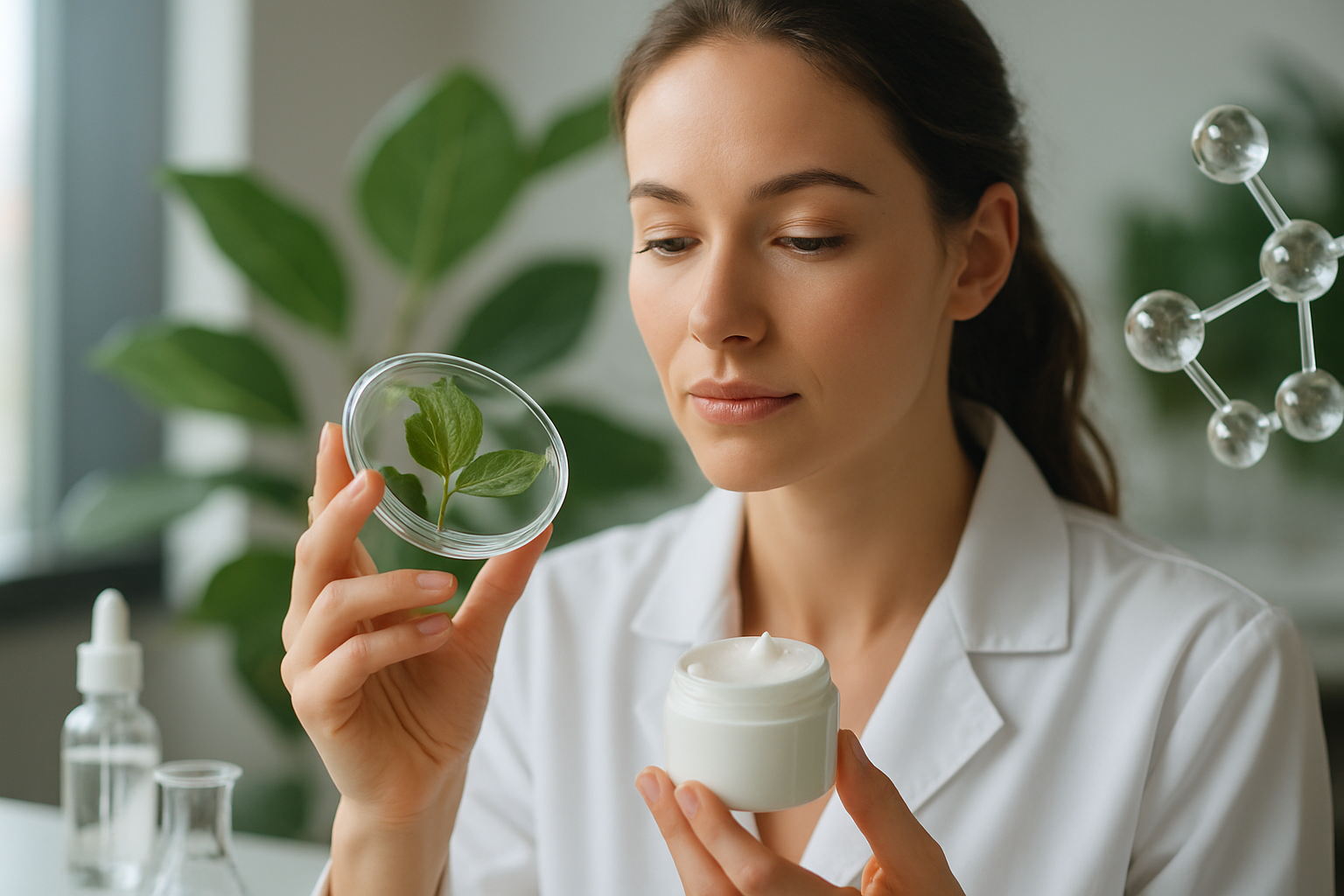Fermented Skincare: The Next Frontier in Beauty
In the ever-evolving world of beauty and skincare, a new trend is bubbling up from ancient traditions and cutting-edge science. Fermented skincare, a revolutionary approach to skin health, is gaining traction among beauty enthusiasts and dermatologists alike. This innovative method harnesses the power of beneficial microorganisms to transform ordinary ingredients into potent skin-nourishing elixirs. As consumers become increasingly ingredient-savvy and seek out natural, effective solutions, fermented skincare is poised to reshape the beauty landscape. With its roots in time-honored practices and its branches reaching into the future of cosmetic science, this emerging trend offers a fascinating blend of tradition and innovation.

The fermentation process can also increase the concentration of certain vitamins and minerals, making them more potent. For example, fermented rice water has been found to contain higher levels of antioxidants and amino acids compared to regular rice water. These enhanced ingredients can provide more effective protection against free radical damage and support skin cell regeneration.
Moreover, fermentation can help to preserve natural ingredients without the need for synthetic preservatives. The acidic environment created during fermentation inhibits the growth of harmful bacteria, extending the shelf life of products naturally.
Historical Roots and Cultural Significance
While fermented skincare may seem like a new trend, its origins can be traced back thousands of years. In ancient Egypt, fermented milk baths were a luxurious beauty treatment favored by Cleopatra. In Korea, women have long used fermented ingredients like rice water and ginseng in their skincare routines, contributing to the renowned “glass skin” effect.
Japanese geishas traditionally used fermented rice bran, known as sake kasu, to brighten and soften their skin. This practice has evolved into the modern use of rice ferment filtrate, a popular ingredient in many Asian beauty products.
In India, Ayurvedic medicine has utilized fermented herbs and plants for centuries, recognizing their enhanced medicinal properties. The fermentation process was believed to increase the potency of natural ingredients, making them more effective in treating various skin conditions.
These historical practices have laid the foundation for the current resurgence of fermented ingredients in modern skincare formulations, blending ancient wisdom with contemporary scientific understanding.
Benefits of Fermented Skincare Products
Fermented skincare offers a multitude of benefits that address various skin concerns. One of the primary advantages is improved absorption. The fermentation process breaks down ingredients into smaller molecules, allowing them to penetrate deeper into the skin layers. This enhanced absorption means that active ingredients can work more effectively, potentially delivering better results than their non-fermented counterparts.
Another significant benefit is the production of probiotics during fermentation. These beneficial bacteria can help balance the skin’s microbiome, which plays a crucial role in maintaining skin health. A balanced microbiome can lead to improved skin barrier function, reduced inflammation, and increased resilience against environmental stressors.
Fermented ingredients often have a lower pH level, which is closer to the skin’s natural pH. This compatibility can help maintain the skin’s acid mantle, its natural protective barrier, leading to improved overall skin health and reduced sensitivity.
The antioxidants produced during fermentation can provide powerful protection against free radical damage, helping to prevent premature aging and maintaining skin’s youthful appearance. Additionally, some fermented ingredients have been shown to have brightening effects, helping to even out skin tone and reduce the appearance of dark spots.
Popular Fermented Ingredients in Skincare
As the fermented skincare trend gains momentum, several key ingredients have emerged as favorites among formulators and consumers alike. Fermented tea extracts, particularly from green tea and black tea, are rich in polyphenols and have potent antioxidant properties. These extracts can help protect the skin from environmental damage and may have anti-aging benefits.
Fermented rice water, a staple in Asian beauty routines, is gaining global recognition for its skin-brightening and moisturizing properties. The fermentation process enhances the presence of vitamins, minerals, and amino acids in rice water, making it a powerful ingredient for improving skin texture and radiance.
Fermented honey, known as honey ferment filtrate, is another popular ingredient. It combines the moisturizing and antibacterial properties of honey with the added benefits of fermentation, resulting in a potent ingredient that can soothe, nourish, and protect the skin.
Kombucha, a fermented tea beverage, has also made its way into skincare formulations. Rich in probiotics and antioxidants, kombucha extract can help balance the skin’s microbiome and protect against environmental stressors.
Fermented sea kelp is emerging as a promising ingredient, offering mineral-rich nourishment and potential anti-aging benefits. The fermentation process makes the nutrients in sea kelp more bioavailable, enhancing its skin-beneficial properties.
The Future of Fermented Skincare
As research in this field continues to advance, we can expect to see even more innovative fermented skincare products hitting the market. Scientists are exploring new fermentation techniques and discovering novel beneficial compounds produced during the process. This ongoing research may lead to the development of highly targeted skincare solutions that address specific skin concerns with unprecedented efficacy.
The intersection of fermented skincare and personalized beauty is another exciting frontier. As our understanding of the skin microbiome grows, there’s potential for creating customized fermented skincare products tailored to an individual’s unique skin microbiome profile.
Sustainability is also likely to play a significant role in the future of fermented skincare. The fermentation process can make use of byproducts from other industries, such as fruit peels or grain husks, turning potential waste into valuable skincare ingredients. This aligns with the growing consumer demand for eco-friendly and sustainable beauty products.
As fermented skincare continues to evolve, it may also expand beyond topical applications. Researchers are investigating the potential benefits of oral probiotics for skin health, which could lead to a more holistic approach to skincare that combines topical fermented products with ingestible supplements.
The rise of fermented skincare represents a fascinating convergence of ancient wisdom and modern science, offering a promising new approach to achieving healthy, radiant skin. As this trend continues to grow and evolve, it has the potential to revolutionize the beauty industry, providing consumers with effective, natural, and sustainable skincare solutions.






